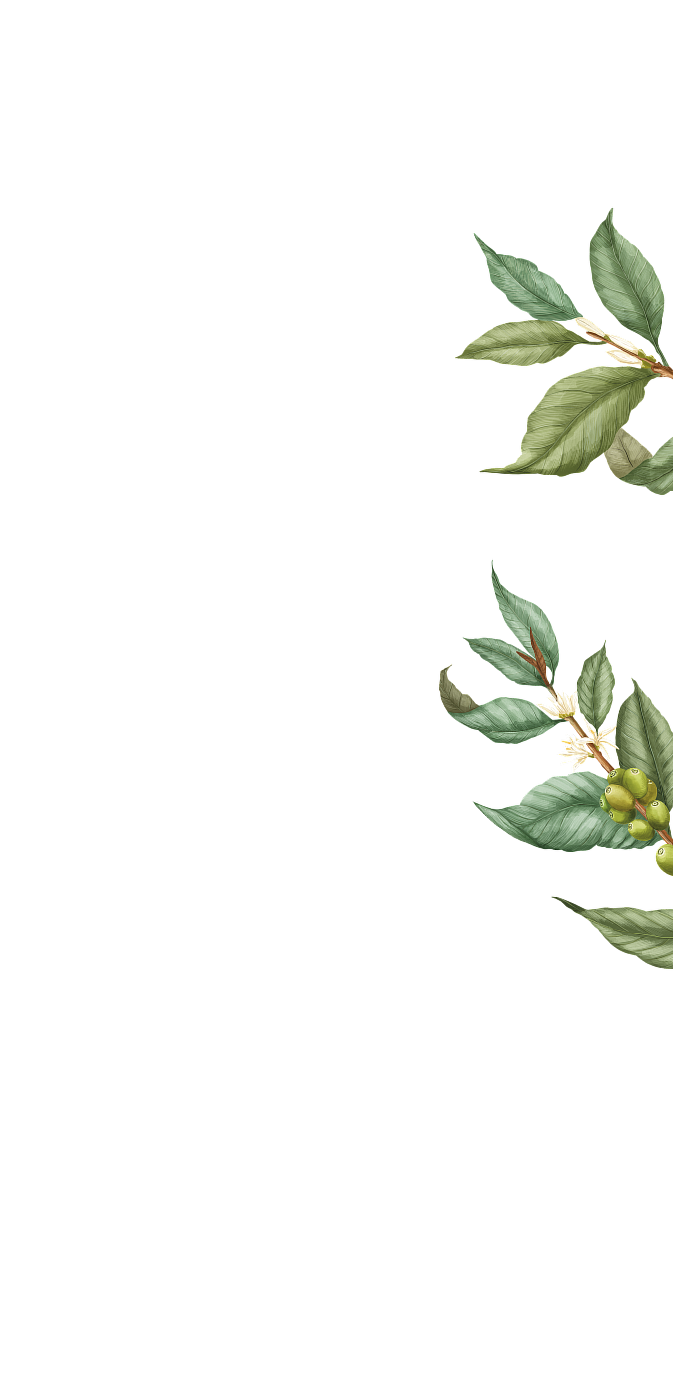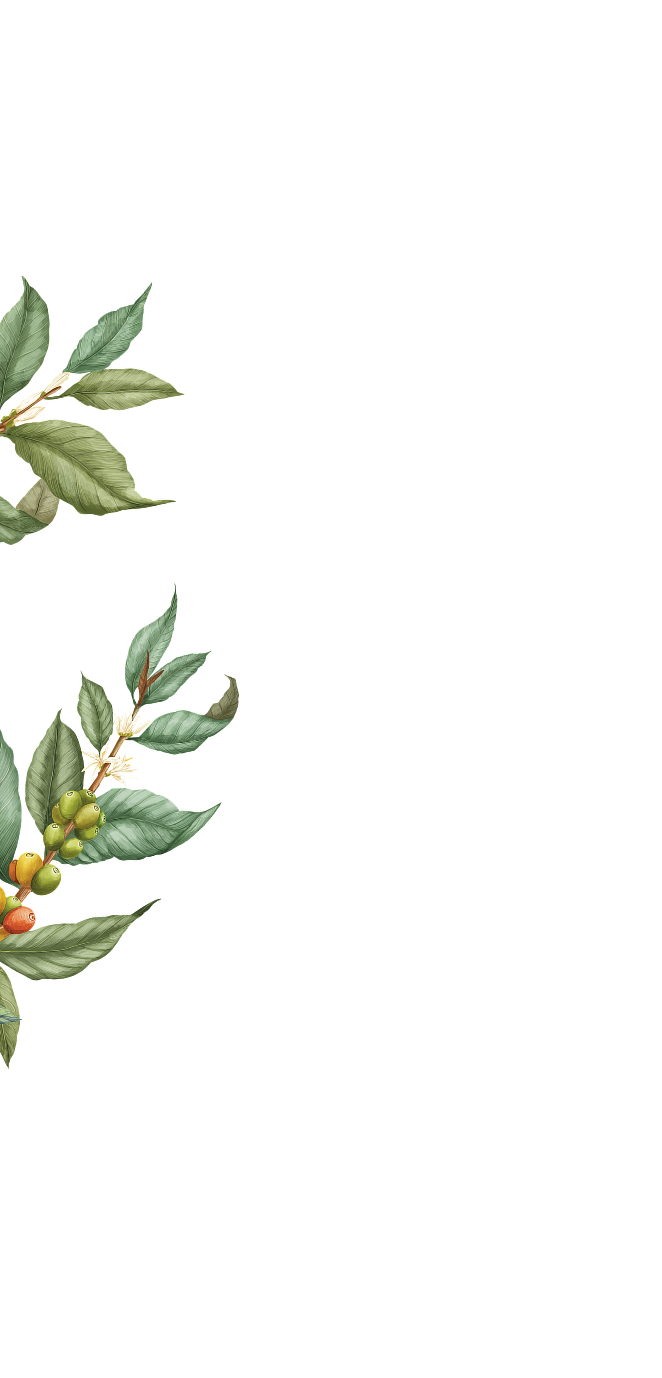FAQ
About Ebru Coffee
Ebru Coffee Co. is a sustainable, single-origin coffee brand, also operating as Ebru Coffee Roastery in Audubon, PA. Beyond the traditional role of a coffee retailer, our mission is to cultivate a deeper connection between people and coffee, from farm to cup. Whether through our meticulously sourced, specialty coffee beans or creative collaborations with local and global coffee communities, we offer more than just a product—we share an experience.
At Ebru Coffee, we see coffee as a bridge to the world’s rich cultural and natural heritage. We honor the distinctiveness of each coffee variety, the traditions of the regions where they are cultivated, and the communities that savor them. Sustainability is our guiding principle, shaping every step of our process. We are committed to fostering a deeper appreciation for the art and science of coffee, creating an environment where knowledge and passion come together.
Our team at Ebru Coffee is a collective of passionate individuals who share a deep love for coffee and a commitment to sustainability. From our experienced roasters and knowledgeable baristas to our dedicated educators and community builders, each member brings their unique expertise and perspective to the table. Together, we work to create not just exceptional coffee, but meaningful experiences that connect people, culture, and the environment.
General Coffee
There’s a common misconception that darker roasts have more caffeine because of their stronger flavor, but in reality, the caffeine content in coffee is relatively stable during the roasting process. Light roast coffee actually has slightly more caffeine by volume than dark roast, due to the fact that the beans are denser. However, if you measure coffee by weight, dark roast and light roast will have similar caffeine content.
When it comes to the type of coffee, Robusta beans contain almost twice the caffeine as Arabica beans. Espresso has the most caffeine per ounce because it is a concentrated brew, though it’s typically consumed in smaller quantities. A standard 8-ounce cup of coffee usually has more total caffeine than a single shot of espresso due to its larger volume.
Light roast coffee is roasted at lower temperatures for a shorter time, allowing the beans to retain much of their original characteristics, including higher acidity and more complex, nuanced flavors. The lighter roast showcases the bean’s terroir—its origin, variety, and growing conditions—much like a fine wine.
Dark roast coffee, on the other hand, undergoes a longer, hotter roasting process. This intensifies the bean’s body and brings out bolder, sometimes smoky flavors with a diminished acidity. The roasting process can also mask the beans’ origin characteristics, leading to a more uniform flavor profile. This is one reason why dark roasts are often used for commodity coffee—roasting darker can obscure the flavors that would otherwise reveal the beans’ age or lower quality. Companies may choose dark roasting to hide these imperfections, resulting in a coffee that is more consistent, but less expressive of its unique origins.
It’s important to note that while dark roasts are associated with stronger flavors, they actually have slightly less caffeine by volume compared to light roasts, due to the loss of density during roasting. So, the choice between light and dark roast isn’t just about taste—it’s about the story you want your coffee to tell.
Proper storage is key to preserving the flavor and aroma of your coffee. Freshly roasted coffee beans release carbon dioxide, a process called degassing, which is crucial for maintaining optimal taste. While coffee needs to degas, it also needs protection from light, moisture, heat, and air. The best way to store your beans is in an airtight container that allows them to breathe but limits exposure to these elements. Keep the container in a cool, dark place, like a pantry.
Many commodity coffees are roasted darker to extend shelf life and conceal staleness. For specialty coffee, proper storage is essential to maintain its unique flavors and aromas. By taking care in how you store your coffee, you preserve the integrity of each bean, ensuring that its journey from farm to cup remains intact.
Storing coffee in the freezer can be a method to extend its freshness, but it requires careful handling. While freezing coffee can slow down the aging process, it’s important to remember that coffee beans are porous and can absorb moisture and odors from the freezer if not properly sealed. If you choose to freeze your coffee, make sure to store it in an airtight container to protect it from moisture and prevent flavor contamination.
However, for most coffee enthusiasts, storing coffee in a cool, dark place at room temperature is often sufficient. The key is to avoid frequent temperature changes, which can cause condensation and degrade the beans. If you have more coffee than you can consume within a few weeks, freezing small, airtight portions can help preserve its quality. Just remember to only take out what you need, as repeated freezing and thawing can affect the flavor.
Coffee doesn’t spoil like perishable foods, but it does lose its freshness and flavor over time. Once roasted, coffee is at its peak for about two to three weeks, after which the flavors and aromas start to slowly degrade. While drinking old coffee isn’t harmful, it can taste stale, flat, or bitter as the volatile compounds responsible for its flavors dissipate.
Old coffee can also become more acidic, which might cause mild digestive discomfort for some people, particularly those sensitive to acidity. While coffee doesn’t become unsafe to drink with age, it’s not enjoyable or recommended. For the best experience, it’s recommended to buy coffee in small amounts that you can consume within a few weeks and store it properly to maintain its unique characteristics.
Shipping & Returns
Orders are processed within 2-3 business days. Orders placed after 3:00 PM on Friday will be processed the following business day. During peak seasons or sales events, processing times may be longer. See more about our Shipping Policy here.
We currently offer free shipping on orders over $75 within the United States. Free shipping is not available for international orders at this time.
Estimated Delivery Times
• Standard Shipping (US): 3-7 business days
• Expedited Shipping (US): 1-4 business days
• International Shipping: 7-25 business days, depending on the destination.
Yes, we ship internationally.
We offer a 30-day return policy on most items. Learn more about our Return Policy here.
Sustainability
Sustainability is central to everything we do. We are dedicated to supporting sustainable practices throughout the coffee industry, ensuring that our impact is both positive and lasting. We work directly with underrepresented regions, bringing coffee straight from our farmers to you. We believe that the future of coffee production depends on sustainable innovation and close collaboration with those who cultivate these remarkable beans.
Yes, we take pride in following ethical practices at every stage, from production to roasting. Our commitment to transparency, fairness, and respect for people and the environment guides our entire process.
Sustainability is a core value at Ebru Coffee. Beyond our dedication to sustainable sourcing and production, we actively work to raise awareness about the challenges facing coffee-growing regions due to climate change. We’re passionate about educating both our customers and the communities we partner with. To learn more about our efforts, explore our coffee blog or join us for one of our in-store classes where we dive into the details of sustainability in the coffee industry.





